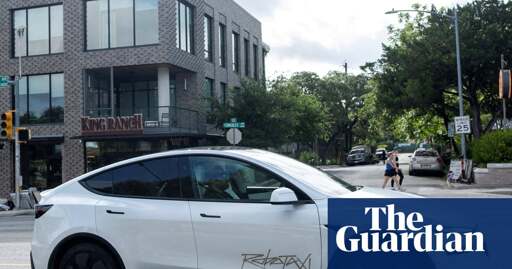The company’s rollout of its new driverless cars has gotten off to a wobbly start – and rival Waymo remains well ahead
After years of promising investors that millions of Tesla robotaxis would soon fill the streets, Elon Musk debuted his driverless car service in a limited public rollout in Austin, Texas. It did not go smoothly.
The 22 June launch initially appeared successful enough, with a flood of videos from pro-Tesla social media influencers praising the service and sharing footage of their rides. Musk celebrated it as a triumph, and the following day, Tesla’s stock rose nearly 10%.
What quickly became apparent, however, was that the same influencer videos Musk promoted also depicted the self-driving cars appearing to break traffic laws or struggle to properly function. By Tuesday, the National Highway Traffic Safety Administration (NHTSA) had opened an investigation into the service and requested information from Tesla on the incidents.



Except:
Your points illustrate why other means besides cameras should be also used, as well as why the human brain’s ability to filter or even ignore things is a bonus to our driving ability. Or a detriment. People who power through bad weather or sun glare or any other obstacles that obscure them seeing well and manage to get through aren’t greater than the computer driver, they’re just lucky. Same can be said for all the people driving while on the phone, they aren’t skilled in multitasking while moving hundreds of feet per second, they just happen to have it clear 99% of the time so think they’re that good.
The main point was that computers need all the information they can get to compete with humans, but they also have the ability to get data we cannot, and it’s stupid to not give them that ability because of some desire to simulate the full (read that as limited) human experience. Humans deal with less info all the time, but that doesn’t make them better.